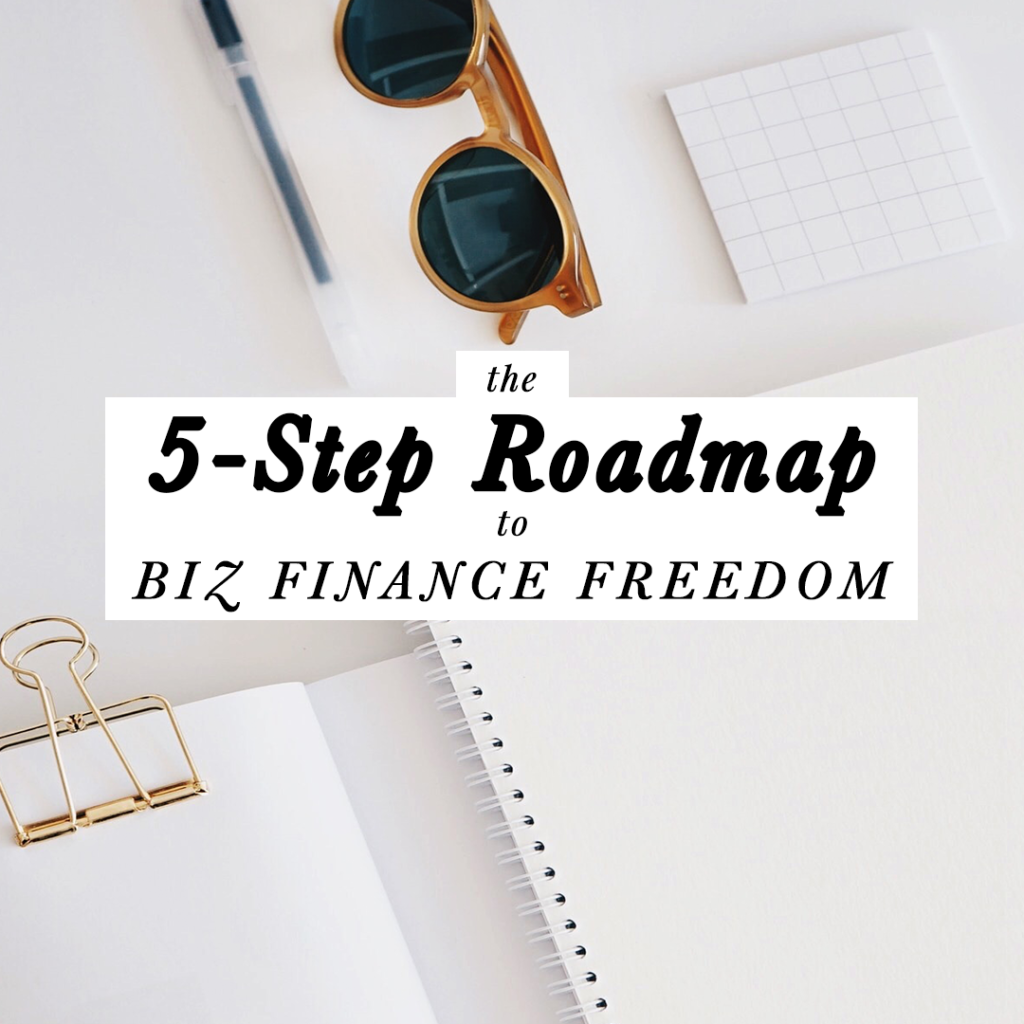Risk is an unavoidable part of business – it can’t be eliminated, but it can be managed. Risk management is when threats to an organization are identified, assessed, and controlled. Threats can be anything from legal issues, financial uncertainty/cash flow issues, accidents, natural disasters, pandemics….
The challenge for small businesses to manage risk is to find that delicate balance between risk management and profitability, because quite often the cost of risk management can outweigh the benefit for small businesses.
You need to know how to use a risk management process effectively.
Common risk management examples and categories are:
Financial risk – This is the risk that there will be a lack of clients and cash supply runs out. Every organization has a threat of this to their business.
Information technology – Most organizations now consider their IT threats and risk management strategies to control them, along with safeguarding client’s information and the organization’s own intellectual property.
Risk of theft and fraud – Organizations expose themselves to the theft of goods when they have brick and mortar, or theft from employees when they allow certain employees to access sensitive information such as banking records. Fraud is also a high-risk area, likely through fraudulent transactions.

Economy – The state of the economy can put a business at risk. As we are experiencing lately, the economic fallout of Covid-19 has hurt and bankrupt many businesses. There is always a risk for businesses to operate and be subject to changing economic conditions.
Foreign exchange risk – when businesses deal with multiple currencies, they are exposing themselves to a loss of monetary value when the purchasing power of their dollar declines. The business will feel a financial loss when this occurs.
Natural disaster – As we have seen in the past with some businesses, natural disasters such as fires and floods can be devastating to businesses. Some risks can be insured against, so be sure to have adequate insurance coverage.

These are just examples of the common types of risks a business can be exposed to, however, there is an endless possibility of risks that can threaten your business.
Some of these risks can be mitigated through insurance plans and backup plans. Determine whether your business is vulnerable to these risks and create a plan on how to react to these events should they become a threat.
Some threats can be mitigated through insurance, others such as the risk of IT crashes can be mitigated through backup plans. Regardless of what threatens your business faces, it is important to have recovery plans in place.
Once your plans are in place, continual monitoring and assessing mitigation plans are recommended, as threats are ever changing.
The best defence you can have against the threats against your business is to be aware and be prepared to act on them.

Financial empowerment is an example of a risk management plan in business
Financial empowerment means that you know your money, you understand how your money is working for you, and you make money work for you. Being financially empowered means you are financially literate.
Money is an integral part of your life and you work hard for that money. Do you feel you are managing your money in the best way possible? Did you know that effective money management can help you reach your financial goals in way less time than not having a plan in place?
The easiest way to become wealthy is by managing your money efficiently and effectively. And for business owners, this is the best way to mitigate risk in your business. When you have your business and personal finances managed, that is an example of risk management.

Here are risk management examples for protecting your wealth:
Living debt free is huge and top of the list.
When you carry debt in any capacity, whether it be credit card debt, mortgage, car payments – you are throwing money away on interest expense. The interest accumulates and adds up quickly. Have you ever looked at how much you pay in interest on your mortgage? What would you rather put that money towards?
You need a plan for your money.
A goal without a plan is just a wish. If you do not have a plan for your money, your money will have no real direction or plan. You’ll find ways to waste it, spend it mindlessly, and wonder where all your money goes.
Get your money working for you.
I am a firm believer in having your money working for you. The opposite of debt is investing. There are amazing ways you can get your money working for you. You can invest your money in stocks, rental property, business ventures, basically anything that will earn you money in repayments.
This is also known as passive income. When your money is protected and invested in appreciable assets, it can generate an income for you and you don’t have much to do other than monitor the progress of the investment.

Learn the power of compound interest
When you truly understand the power of compound interest, you will be hooked on it and having compound interest work for you. Compound interest is the fastest way of getting your money to grow. It takes the initial investment for the first period plus interest earned in that period, then that full amount earns interest on top of the initial investment plus interest, and so on. So the idea is that you are earning interest on your interest, which helps your money grow faster.
The bottom line is being a confident money master, you need to be fearless about money. Not careless – FEARLESS. Get to know your money. Become financially empowered. Make your money work for you.
Taking the risk out of financial mismanagement

5 risk management examples in business
Regardless of what stage you are in your business, good financial planning can make a business successful. A lack of financial management is a large reason why businesses do not survive. Business finances are the backbone of a business.
The U.S. Small Business Administration states: ‘Accounting for revenue and expenses can help keep your business running smoothly. Make sure you maintain proper bookkeeping and have a basic knowledge of business finances.’
If you want your business to be in it for the long haul, successful, and profitable, it is imperative that you understand your business finances. This doesn’t mean that you can’t outsource your bookkeeping tasks or have your accountant to look to for advice. This means that you need to understand your financial reports and can make confident day to day business decisions to ensure that you are making smart, profitable business decisions.
Successful risk management examples in business
Understanding risk management in profit levels and money management
If you are not tracking your business revenue and expenses, then you have no idea if you’re offers are even profitable. If you are in that arena, you are on dangerous territory. The primary purpose of being in business is to make money, so if you are operating your business at a loss, your business will not sustain itself for the long term.
You won’t manage your expenses
Quite often what kills profitability is expenses that run too high. When you are aware that you are overspending you are able to make adjustments. If you know there are money leaks in your business, then you can plug them. When you understand how the volume of sales and expenses affect your bottom line, also known as your profit line, you can make adjustments so that your business becomes profitable.

You could run out of cash
Part of good financial management habits is monitoring your cash flow to ensure that you have enough money flowing into your business so that you can keep current with your financial obligations. Cash supply drying up is one of the biggest reasons for business failure.
Small Business Trends stated 29% of small businesses fail due to cash shortages.
You make decisions that damage your business
If you are running a business without being financially informed of its performance, you are essentially driving blindly. You will have no idea if the decisions you are making are good business decisions.

You won’t be able to obtain a business loan
Any type of investor and bank will require your financial statements when considering to invest or loan money to your business. Without accurate financial statements, which cannot be produced without solid bookkeeping records, you will not be able to obtain the cash infusion that you are looking for in your business.
The bottom line is if you want to create a successful business, you need risk management plan in business. Poor financial management skills will have your business lost without clear direction. Invest the time you need to learn these financial skills. A good business financial coach will have a program set up with a good support system to make it easy for you.
So whether you are just thinking about starting a business, you have recently just started your business, or you’ve been in business for a few years now, you will gain some valuable information that you can apply to your business right away.
Starting a business takes a lot of courage, would you agree? I remember how I felt when I made the actual decision to put myself out there. In a word, terrified. I had no doubt that I wanted to start a business and help others, but I was very scared of putting myself out there. especially online.
I knew for about a decade that I really wanted to go into business for myself, and I had made one false start a while back, but I had not been fully committed to the idea. I let the fear hold me back for so many years.
In fact, I just tried to ignore that inner desire I had to start my own thing. You know, that gut feeling or that voice inside you that gets louder as you try to ignore it….
You get into trouble when you ignore those voices.
I was fortunate enough to have someone believe in me and give me that push I needed, to offer the kind of support I needed to put me into action, that was key to me getting going on my business.
And as I started my business and growing it, I invested in a business coach to help me along the way.

Investing in a coach was a way of risk mitigation in my business.
As I progress along my journey and meet so many people ahead of me in the journey who are willing to help others – I feel very fortunate. I have learned from their guidance and expertise. Helping others is not only good for them and a good thing to do, it also makes us happier and healthier too. Giving also connects us to others, creating stronger communities and helping to build a happier society for everyone.
I know we are all busy and business can feel competitive, but there is room for everyone to shine. I am a firm believer in that. and there are a lot of good people in our community who are willing to help others along as well. I am so grateful for these people.

Although I had a strong business background, launching a business was something I had never done before, and it required a lot of learning and a lot of investing in different programs.
They say the best way to get to know yourself is by becoming an entrepreneur – and I tend to agree. Being a business owner:
- exposes your deepest vulnerabilities
- exposes issues you never even knew you had
- and then you find out what your strengths and weaknesses are
- requires you to get out of your comfort zone
I am very quick to share that my weakness is marketing. I need a lot of help with getting my message out there in a way that people will understand; to make that transition from accounting talk is still difficult for me.
But what I don’t do is shy away from talking about the emotions of business and money. I know you can relate to these feelings, because they are normal human reactions that doesn’t seem to get a lot of attention. but I encourage that those feelings be talked about and addressed, because it’s part of what you are going through is normal and predictable.
Being a solopreneur can also be isolating. Gone are the days of having a coworker you can talk to, there’s nobody to bounce ideas off of, make sure you’ve thought through your plan well, and having someone trusted to talk to.
But be careful in who you choose to interact with, relate to and trust. It sounds pessimistic, but not everyone will support your vision or want to see you succeed. I have met many wonderful business people through this journey who genuinely care about others and want to help them succeed, but there have been a few rotten eggs along the way.
And this is why your mindset is so important. You need to believe in what you are offering to the world, so that when someone tries to shake you, you will be unshakeable.
it’s always a good idea to invest in a coach or a business mastermind group for the added support. It’s good to talk to others during the hard days, and help others when they are facing challenges. And to have people to celebrate a win with – that is a fantastic feeling.
Risk mitigation is a must in business, so if you don’t feel like you can do that on your own, you need to invest in a professional that can help you.

Minimize cash flow risk through risk management
When you are starting out, if you were anything like me, chances are you invested in a lot of courses. There are an endless amount of courses out there for online entrepreneurs, and I took the bait to many of them. Some were fantastic, some downright disappointing and overpriced.
Starting my own business to me was an experience like preparing for my first child. I wanted to be sure I got everything right and educated myself like crazy to ensure I’d avoid the mistakes that the course creator was speaking to. But there were other mistakes that I made. To think I could start at an expert level when I was an amateur is a ridiculous thought.
I made mistakes and I learned from them.
It wasn’t the end of the world and it was just part of the process. I had failed to do my risk analysis for that part.
I chose my niche of helping women entrepreneurs with understanding their business financial information. What I found missing in a lot of the information I was taking in was the money talk. And I get it, there is this belief that the money talk is boring, the accounting side of business is dull, and people just don’t find this topic sexy.
But business is all about numbers. and if you don’t understand your numbers, you will be doing your business a disservice. so this is what I call my zone of genius, because I love to teach people about the value of knowing their business numbers.
I’m not teaching you to be a professional accountant, I’m not even trying to tell you to be your own bookkeeper, but what I do want to help you with is to know your business numbers.

Risk management in business is essential and can be minimized by taking care of your finances
Use a bookkeeper, but make sure you understand the value that they are offering.
Definitely use an accountant because every business owner has their own unique financial situation and having a professional tax accountant offer you the best tax-saving tips and offer you advice on how to manage your business is invaluable.
Trust me, you don’t want to save pennies with money management. what many business owners often don’t realize, financial advice may cost a bit at the outset, but the return on investment is high because you take these money saving tips and apply them continuously, you are saving that money so many times over. Never skimp on financial advice!

There is no reason to feel shameful if you’ve started a business not knowing or understanding how these numbers work. I started a business not knowing or understanding marketing, and believe me, I feel no shame about it. What I do is hire marketing experts that can help me.
Are you making these money mistakes in your business?
You’re an ambitious woman and you likely became an entrepreneur because you saw you could do more in your career. You wanted to reach higher, reach more people and make your mark in the world. Being an entrepreneur offered you a way of doing that, and you hit the ground running.
You learned all the things: marketing, sales, social media, the tech, and so much more. You tackled that learning curve and absorbed all the knowledge. Yet, you keep wondering, where is all my money going….
Business is about numbers, and to be an effective CEO of your business, you need to know your numbers.
Often, I see these mistakes that entrepreneurs are making. Are you making any of them?
Here are some examples of risk management process:
By not having a plan for your business you are not managing risk
Regardless of how many years you’ve been in business, if you are operating your business without a financial plan, you are putting your business at risk. A financial plan is essentially a business operating budget which plans out concrete revenue goals and an expense plan designed to achieve those goals while maintaining a desired profit margin.
Not charging what you’re worth
If you are discounting your rates because you think you’ll get more clients or you’re afraid to charge more, you should reconsider this strategy. First off, you are worth charging fair market value for your services. Secondly, clients are smarter than that and are willing to pay top dollar when the value is there. Think about the message you are sending and the type of client you are attracting if you discount your rates.
Not knowing your business numbers
If you are selling an offer and you have no idea if it is profitable, or what the profit margin is on that offer, you are asking for trouble. You need to know how much you are making off each offer. And more importantly, you need to understand the cost of selling that offer. When you know the expenses, you can see where you can trim down expenses which makes that offer more profitable. And more profit = more money in your pocket.

Poor record keeping
Keeping your books current and up to date is so important. Your books may seem like a tedious task, but it is that financial data that gets entered that tells the story of your business. It will tell you how the business is performing, how to manage your cash, how profitable the business is, where your strengths and your weaknesses are, and so much more. Financial information is invaluable, and when you learn how to use it to your advantage, you will be unstoppable.
Negative money mindset
Limiting beliefs and negative mindsets are issues that can hold even the best entrepreneurs back. The brain works in mysterious ways and works to protect you from harm. So having negative issues creep in and hold you back is part of the process. The key is to be self-aware and deal with any issues that are creeping in. Types of money mindset issues are not charging what your worth, being scared to make a sale, limiting how much money you want to make in your business, and so on. Everyone has a money story and you should take the time to examine yours.
The bottom line is that mistakes happen, they are a part of life. The good thing about mistakes is that we can take the opportunity to learn from them. Nobody is perfect, and in every mistake there is an opportunity for growth.
Take this opportunity to protect your business finances, and your money, by investing in the skill of knowing your business numbers. A business finance coach can help you.
Risk management in business is essential.
